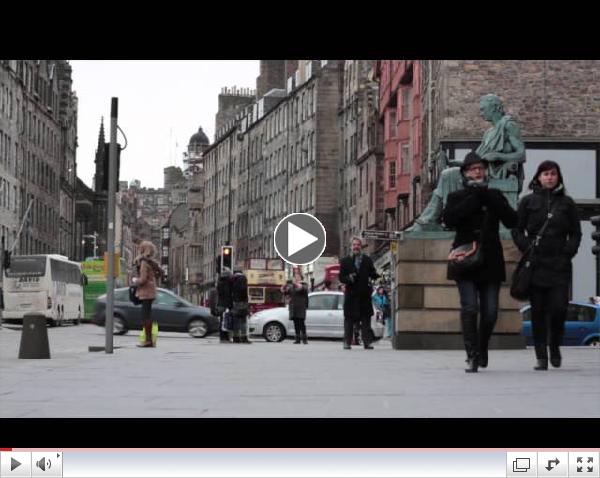LEARNING FROM THE SCOTTISH MASTER
Larger-than-life Scottish hero William Wallace and current Scottish First Minister Alex Salmond are both famous for their pursuit of Scottish independence.
But their methods have been rather different.
William Wallace took the direct physical approach involving lots of horses, swords and spears.
He defeated the English army at the Battle of Stirling Bridge in 1297, but then lost in the Battle of Falkirk the following year.
Wallace was later captured near Glasgow and handed over to the King of England.
He was hung, drawn and quartered in 1305.
Then things took a turn for the worse.
When the big award-winning film was made of William Wallace's life (complete with various historical inaccuracies), he suffered the further indignity of being portrayed on screen by an Australian.
 |
| Mel Gibson as William Wallace in Braveheart |
By contrast, Alex Salmond is alive and well.
As a result, he's able to play himself on Scottish television every night without the need for an actor imported from the southern hemisphere.
Alex Salmond has just made his latest and rather more peaceful move towards trying to make Scotland an independent nation.
He's announced the date of the referendum which will take place on 18 September 2014.
The smart money suggests - at this early stage - that the majority of Scots will vote against independence...fearing, among other things, that Scottish oil won't be enough to sustain prosperity without English support.
As a communications professional, I'm naturally neutral on the issue of whether Scotland should depart from the United Kingdom (which, if it happened, would presumably mean the rest of the place would have to be re-named the Disunited Kingdom!)
 |
An Australian tourist loitering outside Edinburgh Castle in the hope of being cast in the next big Scottish movie
|
But having met Alex Salmond and watched him deal with the media, I'd have to say: Don't underestimate his powers of persuasion.
Alex Salmond is a captivating political leader who is a master at engaging with the media on his terms.
Love him or loathe him, there's much we can learn from his approach to journalists.
When I met him during the first of his two stints as the leader of the Scottish National Party, I was far more impressed by him than I am with most politicians.
So working in Scotland this week, and watching Mr Salmond perform on Scottish TV, I've been reminded of just how charming and articulate he is.
Click here if you'd like to hear my thoughts about this master of engaging with the media which were recorded in icy conditions on The Royal Mile.
 |
| Maximizing Your Free Media Publicity |
Alex Salmond's rhetoric may not be quite as fiery as William Wallace's.
But he must still lie awake nervously wondering if Mel Gibson will be brought back to Scotland to portray him in a future movie.
And if you need reminding about what a fired-up Scottish-accented Mel Gibson looks and sounds like, then click here on this rousing excerpt from Braveheart.



